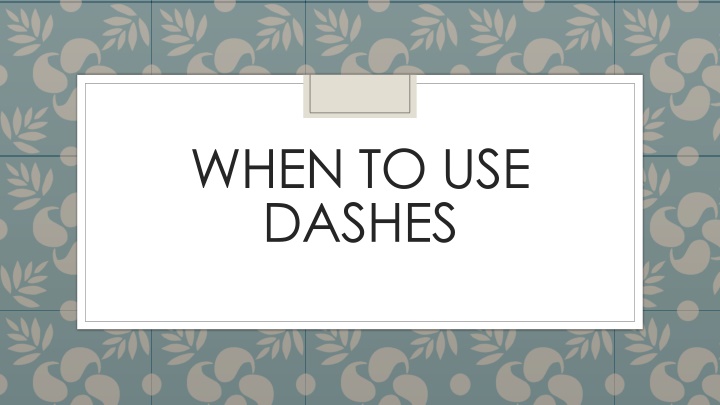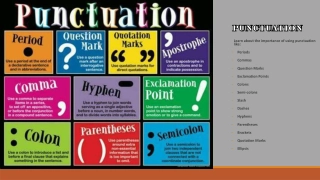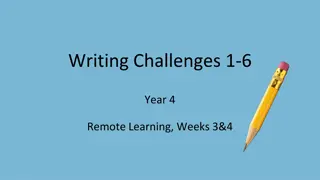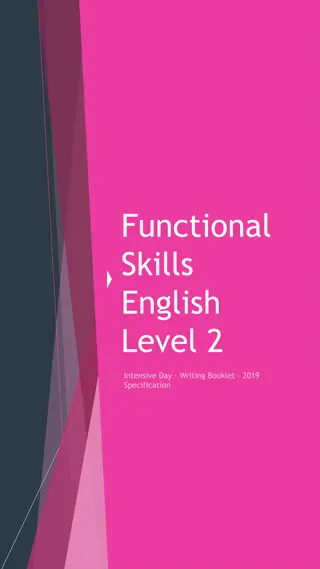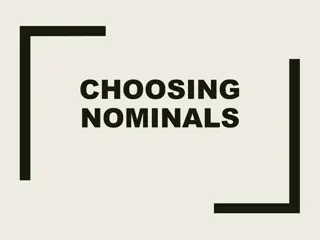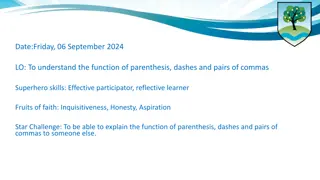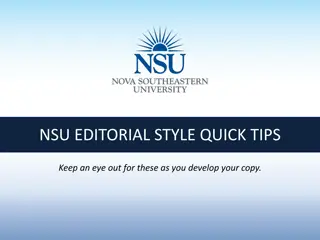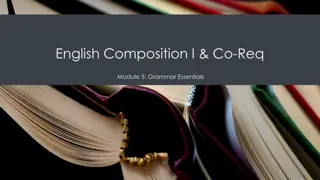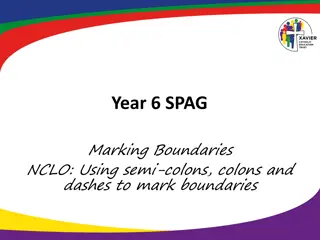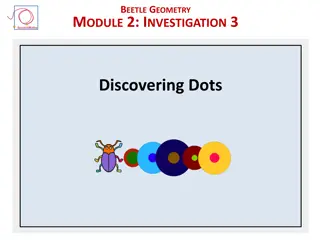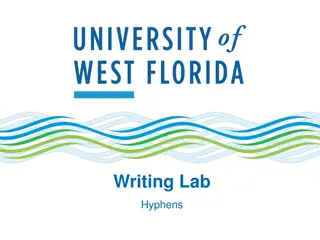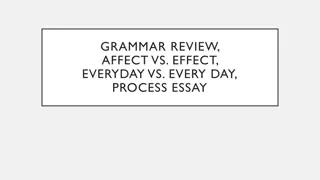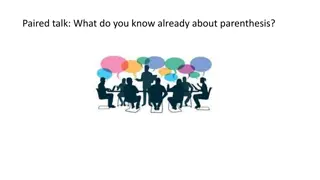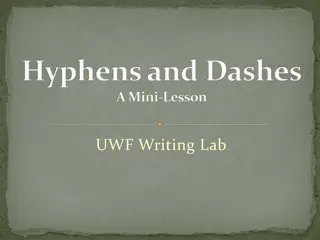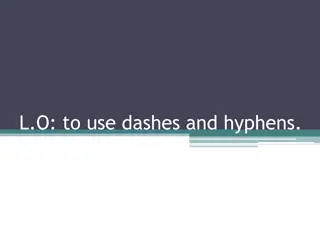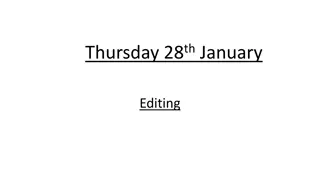Using Dashes for Emphasis in Writing
Learn when and how to use dashes effectively in your writing to emphasize important information and enhance clarity. Avoid overusing dashes, which can disrupt the flow of your prose. Discover practical rules for utilizing dashes to draw attention to key points and create emphasis within sentences. Practice examples provided for hands-on application.
Download Presentation

Please find below an Image/Link to download the presentation.
The content on the website is provided AS IS for your information and personal use only. It may not be sold, licensed, or shared on other websites without obtaining consent from the author.If you encounter any issues during the download, it is possible that the publisher has removed the file from their server.
You are allowed to download the files provided on this website for personal or commercial use, subject to the condition that they are used lawfully. All files are the property of their respective owners.
The content on the website is provided AS IS for your information and personal use only. It may not be sold, licensed, or shared on other websites without obtaining consent from the author.
E N D
Presentation Transcript
WHEN TO USE DASHES
Example of a hyphen: My brother-in-law is a teacher
Note on Dashes There is never a situation where you NEED to use a dash. Dashes are simply substituted instead of other punctuation marks when you want to emphasize something. Overusing dashes can break up the flow of your writing, making it choppy or even difficult to follow, so don t overdo it.
Dash Rule 1 You can use a dash instead of commas when there is information that you want to emphasize. Example: And yet, when the car was finally delivered nearly three months after it was ordered she decided she no longer wanted it.
Dash Rule 2 You can use a set of dashes instead of parentheses to draw more emphasis. Parentheses act like a whisper and dashes are loud. Example: Upon discovering the errors all 124 of them the publisher immediately recalled the books.
Dash Rule 3 You can replace a colon at conclusion of a sentence and use a dash instead to draw emphasis to a point. Example: After months of deliberation, the jurors reached a unanimous verdict guilty. Example: The white sand, the warm water, the sparkling sun this is what brought them to Hawaii.
Dash Rule 4 You can use a dash at the beginning of a sentence to emphasize something. Example: Books, paper, pencils many students lacked even the simplest tools for learning in nineteenth- century America.
Practice 1. The package finally arrived badly damaged. 2. Some of you I won t mention any names cheated on the test. 3. I didn t go out with him a second time once was more than enough.
